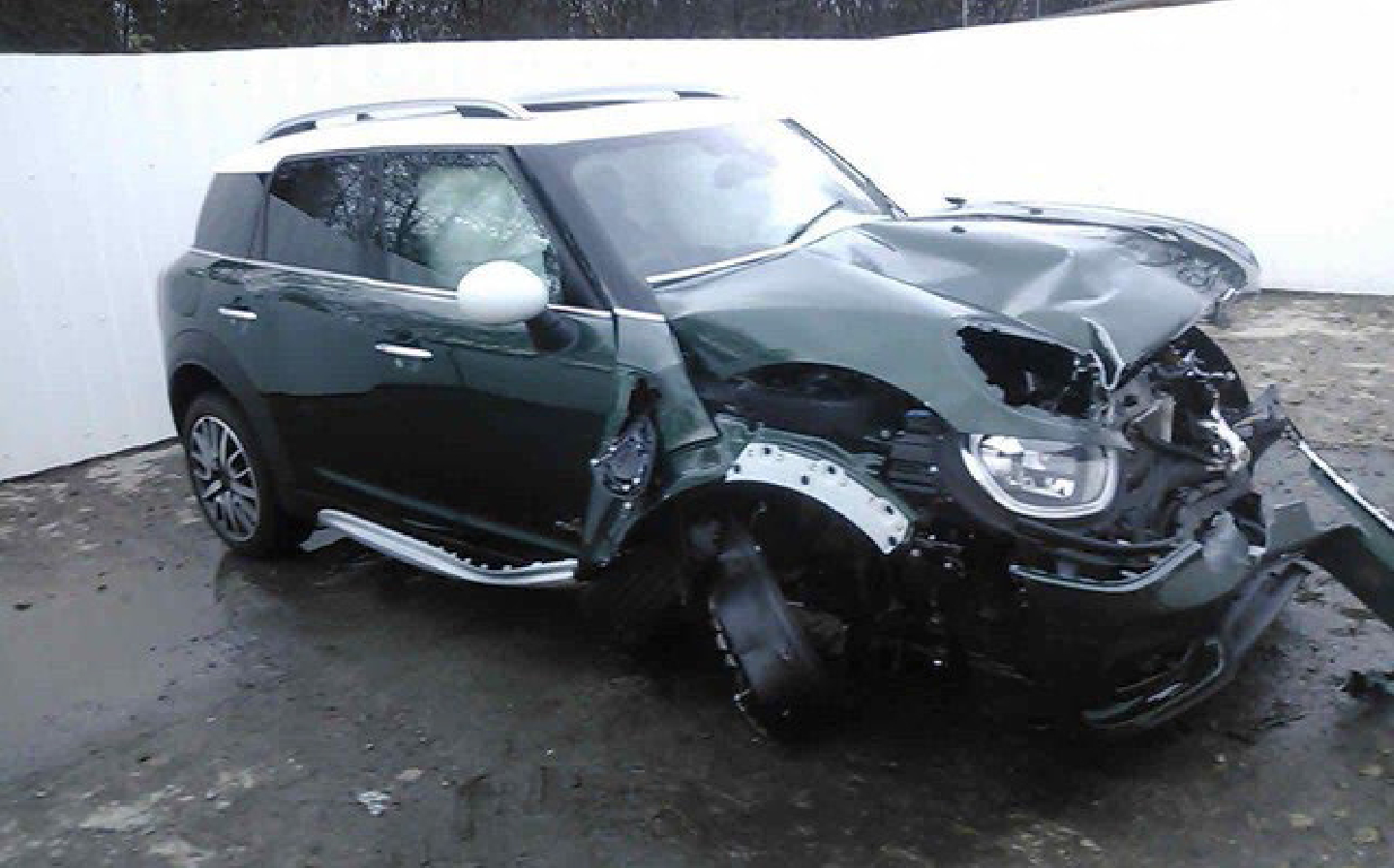Wrecked cars found to be sold by UK's biggest car dealers with no mention of chequered past
Channel 4 investigation links Cazoo and Cargiant to scandal
Used cars that have been involved in heavy crashes are being repaired and sold to unsuspecting customers with no mention of their chequered history, according to a new Channel 4 investigation.
Dispatches documentary Why Is My Car So Expensive?, due to air tomorrow (Monday), found that high demand for used cars has resulted in crashed cars with a hidden history being sold for a premium.
The car dealers involved include some of the biggest names on the market. Though Cazoo and Cargiant told the programme they don’t sell cars that have been involved in accidents, both were found to have passed on cars that were declared insurance write-offs.
An undercover investigation within the show revealed a Skoda Karoq that was on sale at Cargiant, the country’s biggest second-hand retailer, for £18,299. There was no mention of any accident damage in the advert but a salvage report for the vehicle stated that the Skoda was a “Cat S”, meaning it was a write-off for structural damage and unsafe to drive.
What are Cat A, Cat B, Cat S and Cat N cars, and should I buy a write-off?
Repairs can be carried out on Cat S cars but even if it is carried out by qualified professionals, the car may never feel the same again. Substandard work can be life-threatening to the driver.
Cazoo claims to conduct a 300-point inspection on all vehicles, which includes checking the car’s history report, yet Dispatches found a BMW 1-series for sale with no mention of accident damage, despite a salvage report carried out by the film-makers showing that it had been in a collision during which its airbags deployed.
Both companies provided reassurances that the cars were safe. An undercover reporter visiting Cargiant in person was told: “We don’t sell those salvage cars any categories … [a] car has to go through all the multipoint / multiple inspections which is almost 114,169 checks.”
Motoring journalist Ginny Buckley, reporting for Dispatches, contacted Cazoo by phone. She was told: “We don’t sell any vehicles that have been in any accidents.”
It’s estimated that 40,000 undeclared written-off cars are sold each year, with a value of about £800 million. Some cars involved in accidents can be repaired to a safe standard but where substandard repairs have been carried out — including not replacing airbags — a subsequent crash could prove fatal to the driver.
Basic background checks are often shown on retailer websites but these do not always show whether a vehicle was damaged in an accident; enhanced background checks are the only way to be sure but there is no legal requirement for these to be conducted on a car before it is sold again.
The Sunday Times today reported the case of David, a project manager from Manchester, who bought a Mini Countryman for £17,500 last year from a dealership and tried to part-exchange it for a smaller vehicle eight months later at a different dealership. The extensive background checks carried out at that point revealed the car had been written off previously.
“On viewing the images I was absolutely horrified,” he told the paper. “[There was] damage to the sill, curtain airbags, dashboard airbags all gone off — completely ripped off, the front wheel.”
David returned the car to the original dealership, who he asked not to be named, and received a refund in full but later found the car had been put back on sale.
Prices of used cars have been inflated as a result of reduced supply of new cars, caused by a shortage of semiconductor computer chips following the pandemic, and by further disruption to supply chains such as the war in Ukraine.
New car buyers are waiting up to 18-24 months for certain models, as carmakers prioritise production of vehicles with the highest profit margins, which means more people are turning to secondhand cars instead, pushing up their prices. Last year used car sales rose by 11.5%, with about 7.5 million changing hands.
The demand for cars rose during the pandemic, as people were unable or reluctant to travel by public transport, and the recent rail strikes are fuelling further interest in cars.
Ian Ferguson, a vehicle claims expert, said it was resulting in more dangerous cars returning to the market and an increase in crime, with gangs stealing cars and stripping them for parts that can then be used to repair damaged vehicles.
“It means that there’s more money to be made on these written-off and salvaged cars,” he said.
“We have cars with airbags that have gone off and instead of replacing the airbag, the airbag’s simply been cut away and the system’s been reset. That could have fatal consequences.”
A Cazoo spokesperson describes the example found by Dispatches as “highly unusual”, adding: “All our cars undergo thorough quality checks, including searches for any previous accident or damage history.
“In a rare example like this, damage which is not reported to an insurance company may not show up in [industry standard] searches, although we would, of course, refund the customer in full. We have now undertaken a full review of our processes.”
Cargiant said all of its vehicles were “checked against the industry standard vehicle history database and undergo rigorous inspections”. In the case of the Skoda, Cargiant said it had paid full market price for the vehicle from “one of the world’s largest vehicle remarketers”.
A spokesperson said: “The vehicle passed both theirs and Cargiant’s physical inspection and [industry standard database] checks.”
“Once Cargiant learnt that the insurer failed to declare the car’s write-off status, it immediately withdrew the vehicle from sale. Cargiant now checks all their retail stock with [a wider database] and found this to be the only undeclared write-off.”
Dispatches: Why Is My Car So Expensive? will be shown on Channel 4, Monday, 8pm.
Related articles
- If you were interested in this story about wrecked cars being sold by UK’s biggest car dealers, you might like to read more about the low supply of new cars causing high demand and prices for used cars
- We have a guide to five used cars under £5,000 with exceptional fuel economy that could save you money during the cost of living crisis, but of course always perform background checks before committing to buy
- Are motorways really the safest roads in the UK?
Latest articles
- Aston Martin Valkyrie AMR-LMH hypercar hits track ahead of 2025 Le Mans challenge
- Porsche has begun testing the electric Cayenne
- Cupra Leon 272 eHybrid 2024 review: Bigger battery, better tech … but is it a Cupra?
- Porsche 911 GTS 2024 review: Hybrid heresy or more Stuttgart genius?
- Extended test: 2023 Vauxhall Astra Sports Tourer GS PHEV
- Ford Capri revival has faced a lot of flak… but are buyers put off? Here’s what visitors to the Festival of Speed had to say
- F1 2024 calendar and race reports: What time the next grand prix starts and what happened in the previous rounds
- ‘No timeframe’ for how long Volvo’s returning estate cars will be on sale in UK
- Kia Picanto 2024 review: Updates add spice to cute Korean city car














